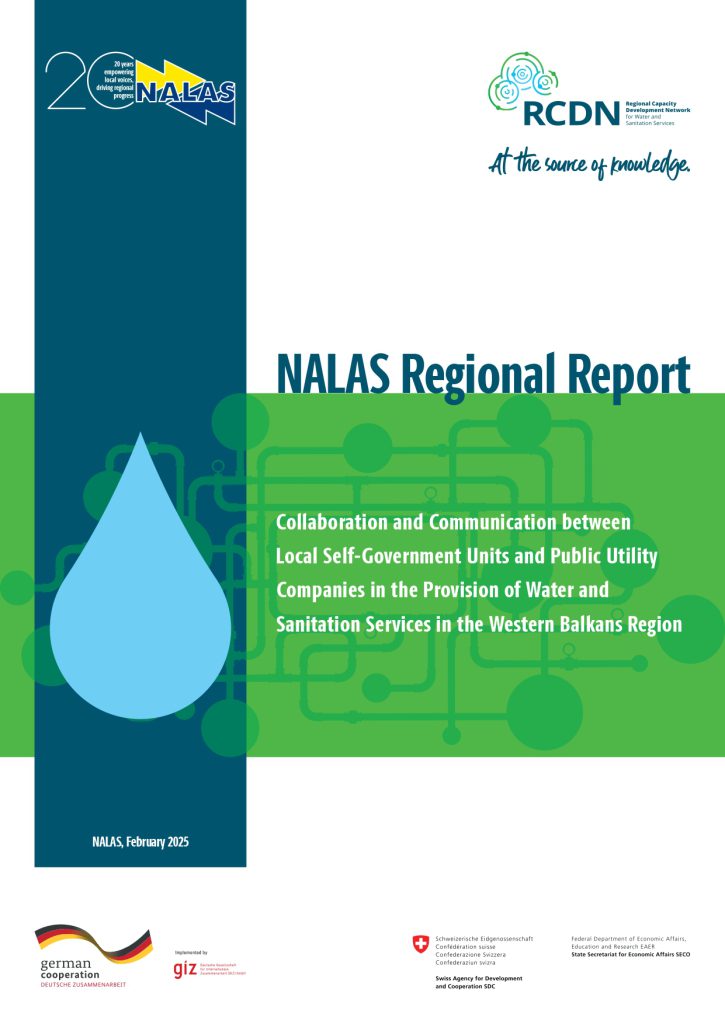
Municipalities and public utility companies in the Western Balkans face significant challenges in delivering sustainable water and sanitation services while complying with EU regulations. Effective cooperation between local self-governments (LSGs) and public utility companies (PUCs) is crucial, yet communication gaps, bureaucratic obstacles, and differing priorities often hinder efficiency and service quality. LSGs oversee policy and infrastructure investment, while PUCs manage operations and maintenance, requiring better coordination to ensure reliable and affordable services. This report examines existing collaboration frameworks, identifies challenges and best practices, and provides recommendations to improve communication and cooperation, ultimately enhancing water and sanitation services in the region.
As part of its Strategic Plan 2023-2027, in line with the Workplan of its Working Group on Water Management, NALAS conducted this regional research between September 2024 and January 2025 to assess collaboration and communication between LSGs and PUCs in providing water and sanitation services (WSS). Supported by SECO and BMZ/GIZ under the Regional Capacity Development Network for Water and Sanitation Services (RCDN) project, the study examined LSG roles, oversight of PUCs, regional service provision, and citizen participation across six Western Balkans economies. The research also considered the trend of regionalization while respecting local autonomy principles. The findings contributed to this, offering recommendations for strengthening LSG capacities and improving cooperation in WSS management.
The research resulted with a policy position and a practical guide for LGUs and LGAs for advancing collaboration and communication in the provision of water and sanitation services.
Download them on the link below: